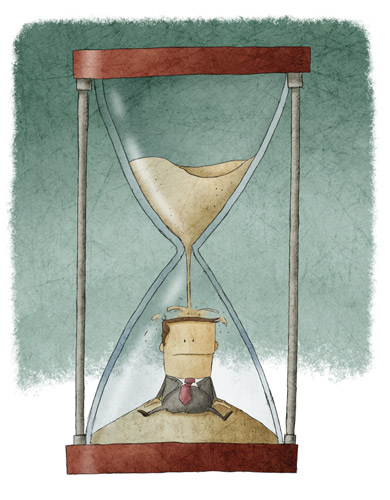
By Jonathan Evans
Herbal Information Specialist for the Herbarium
Stress? I don’t have stress!
Sure, I have trouble sleeping, yeah, my digestion is off but I use antacids, no big deal. Of course I get headaches.
Bouts of diarrhea and constipation? Big deal, lots of people have that. That’s not stress.
Heard that before? Or have you said some of these things? Surprise! These are just a few of the physical manifestations of stress. I won’t even begin to discuss the mental, emotional and spiritual manifestations just yet.
What exactly, is ‘stress’?
According to Webster’s dictionary, one definition of stress is “physical or emotional tension.” Stress is stress, good or bad, it doesn’t matter. It is how you deal with stress.
Some people enjoy a good challenge and revel in the tension. It makes them feel alive. Others may find the same challenge debilitating. In either case there are effects on your body.
Adrenaline is flowing, which is good. If you do not feed your glandular system and you keep up the stress, your adrenal glands can become exhausted. Nerves can become frayed; muscles will ache, which leads to other problems. Anxiety, depression and other conditions can develop from stress. Obviously this is a big area to cover.
Addressing stress herbally
Here are some definitions and key words to help you find the right herbs to help combat your level of stress.
Adaptogen – These are herbs that increase the bodies ability to adapt to stress, are limbic (emotional) brain tonics, help tonify the stress axis (hypothalamus, pituitary, adrenal), adrenal builders and hormonal strengtheners. Tonic herbs include: reishi mushroom, ashwagandha, eleuthero, rhodiola, ginseng (American, Chinese), licorice, gotu kola
Parasympathetic, anti-anxiety – These herbs help decrease adrenaline and reduce the fight or flight response. Herbs: lobelia, pulsatilla, wild oat, kava.
Sedative – Calms the central nervous system for pain, stress and anxiety. Herbs: valerian, skullcap, St. John’s wort, hops passion flower, chamomile.
Nervine – Nerve tonics and antispasmodics. Help strengthen, regulate, feed and rehabilitate nerve cells. Antispasmodics prevent or relieve excessive contractions, tension and irritability. Herbs: lobelia, skullcap, valerian, wood betony, hops, black cohosh, wild yam.
Other herbs also used for stress include borage, hawthorn berry, leaves and flowers, lemonbalm, vervain and oatstraw.
Vitamins and minerals for stress
Sufficient magnesium is very important in combatting the effects of stress. Magnesium is a natural muscle relaxer and aids in the smooth flow of electrical energy and impulses through the nervous system. I have written extensively on the importance of magnesium in previous columns. For more detail check Prime’s online archives (see the health archives at www.primeontheweb.com).
B complex, which I have also written about previously, is also an important nutrient for nerves and combating stress. Both vitamin B and C are your “stress vitamins.” They are water-soluble and need to be replenished regularly. Typically using about 100 mgs of a complete B complex can do wonders.
Other alternative treatments
There are several essential oils that are calming. Chamomile (both Roman and German), clary sage, lavender, bergamot, melissa, lavandin, and catnip are all helpful.
Homeopathy offers a variety of formulas for stress and tension. A trained homeopath can do an extensive workup on an individual, or you can find several over-the-counter combinations that are very effective.
There is a line of products known as flower essences that can be incredibly helpful for the mental, emotional and spiritual aspects related to stress. Remember, you are more than your physical being. Using just herbs and nutrients to treat a problem is ignoring the rest of your person.
Flower essences are rather difficult to explain, similar to explaining homeopathy, and would take a whole column to even try. Take my word for it; I have seen these items in practice in my store and the amazing results that took place in a matter of minutes.
Then there is CBD oil, which our editor, Debbie Gardner, wrote about recently in our sister publication, The Reminder (check the health archives at www.thereminder.com).
Identify your triggers
Back to stress itself. No one is immune to it’s effects and it can be challenging just trying to identify what your trigger or triggers might be.
Do you watch the news during dinner, or bury yourself in the CNN/ FOX battle over “fake news” or keep checking the computer or that stupid phone every 4.5 minutes? You may think this is the way to stay informed. In my opinion, it is the worst way.
The environment, politics, the economy, family dynamics, health issues all are hammering away at us constantly. Meditation, exercise and counseling can help, but it appears it is not enough.
Stress, anxiety, depression, digestive issues and sleep disorders have become major issues for us at the Herbarium. It seems this has become the new normal for the near future. Future columns will address these issues individually.
— Jonathan
Send questions on botanical remedies to: Natures Rx: Jonathan Evans at herbarium258@gmail.com, or by regular mail to: The Herbarium, 264 Exchange St., Chicopee, MA 01013. If requesting additional info, include a self-addressed stamped envelope.